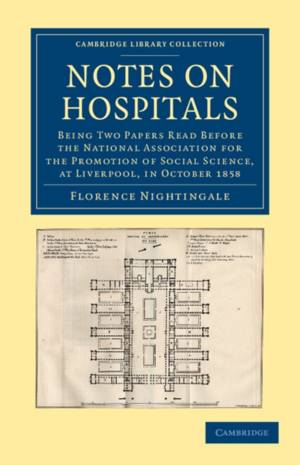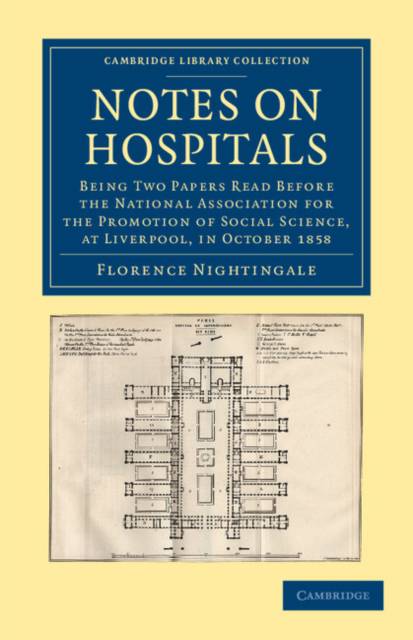
- Afhalen na 1 uur in een winkel met voorraad
- Gratis thuislevering in België vanaf € 30
- Ruim aanbod met 7 miljoen producten
- Afhalen na 1 uur in een winkel met voorraad
- Gratis thuislevering in België vanaf € 30
- Ruim aanbod met 7 miljoen producten
Zoeken
Notes on Hospitals
Being Two Papers Read Before the National Association for the Promotion of Social Science, at Liverpool, in October 18
Florence Nightingale
€ 58,45
+ 116 punten
Omschrijving
Returning from the Crimea, Florence Nightingale (1820-1910) used her experience of army medicine to ameliorate civilian nursing care. She was appalled by the conditions she found, affirming that the first requirement of a hospital was that 'it should do the sick no harm'. Problems such as overcrowding and damp, in addition to lack of ventilation and proper sanitation, contributed to high mortality rates. Nightingale's belief that such suffering was preventable was seen as revolutionary. In 1859 she published her two most influential works, Notes on Nursing (also reissued in this series) and Notes on Hospitals. This collection contains the two papers she presented to the National Association for the Promotion of Social Science in 1858. Also included, from 1857, is her evidence to the royal commission on the British army's sanitary conditions. Three illustrated articles on hospital design, published in The Builder in 1858, form an appendix to the work.
Specificaties
Betrokkenen
- Auteur(s):
- Uitgeverij:
Inhoud
- Aantal bladzijden:
- 128
- Taal:
- Engels
- Reeks:
Eigenschappen
- Productcode (EAN):
- 9781108064415
- Verschijningsdatum:
- 4/07/2013
- Uitvoering:
- Paperback
- Formaat:
- Trade paperback (VS)
- Afmetingen:
- 140 mm x 216 mm
- Gewicht:
- 172 g

Alleen bij Standaard Boekhandel
+ 116 punten op je klantenkaart van Standaard Boekhandel
Beoordelingen
We publiceren alleen reviews die voldoen aan de voorwaarden voor reviews. Bekijk onze voorwaarden voor reviews.











